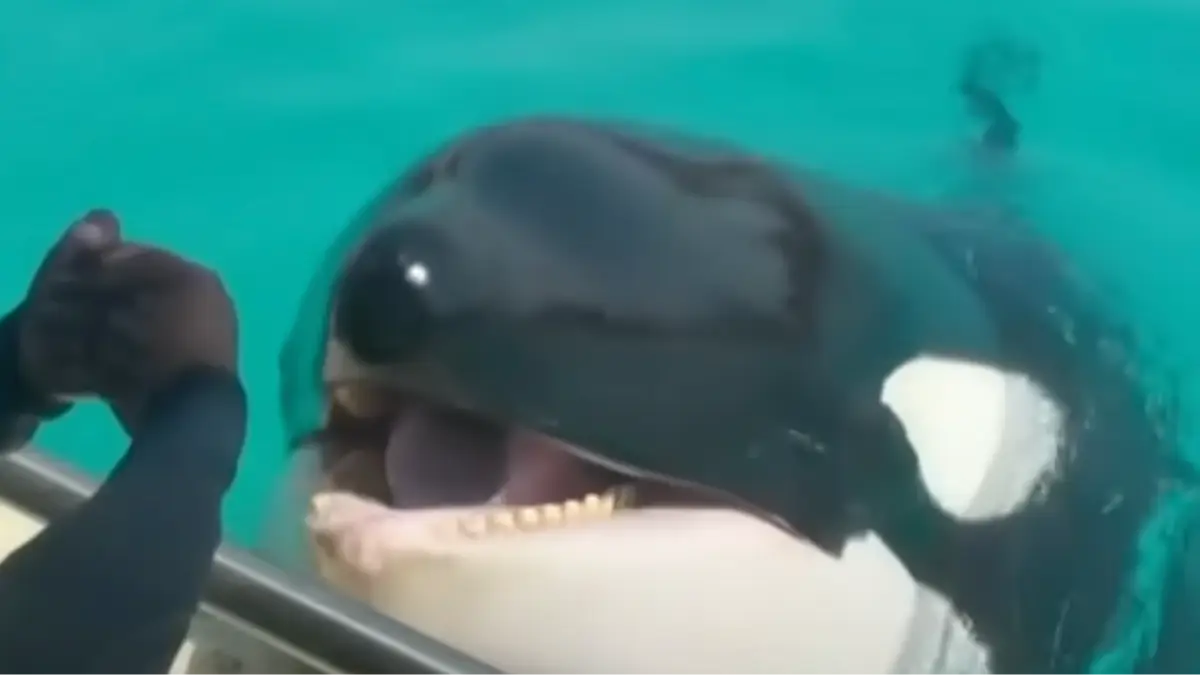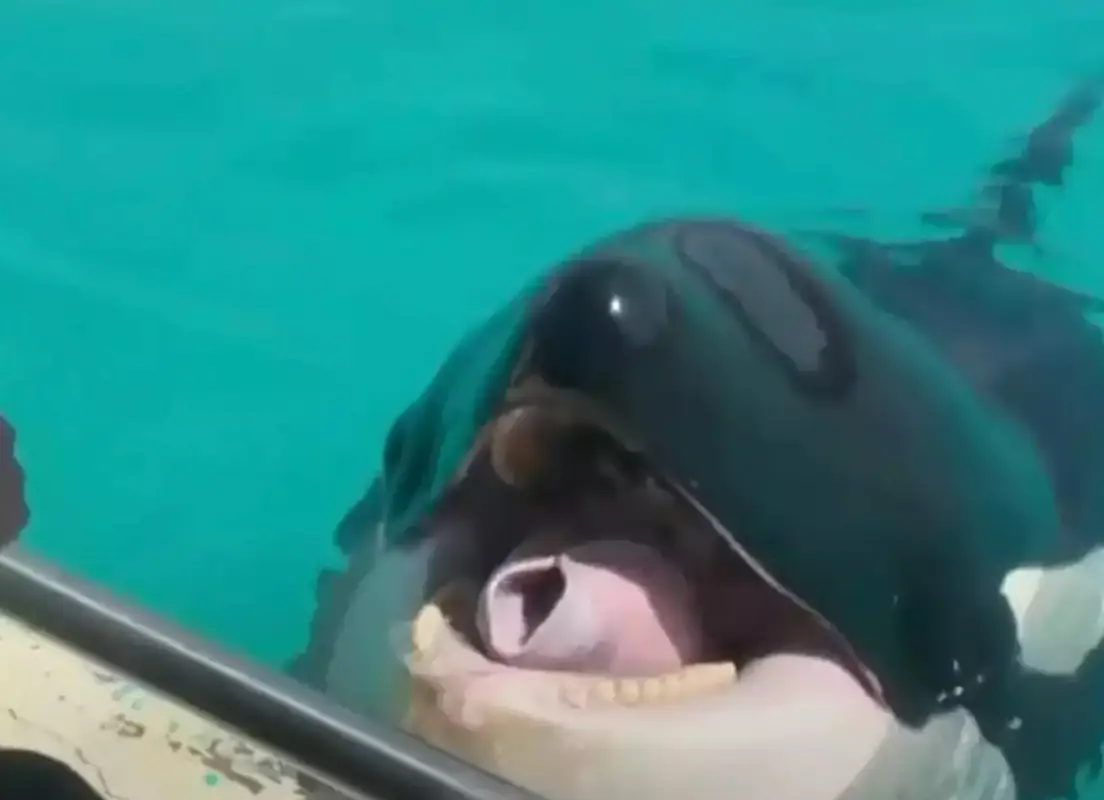
Scientists have explained the truth behind a viral recording of orcas seemingly imitating human speech that left people extremely terrified.
Also known as killer whales, orcas have evolved to swim up to 40 miles a day, according to National Geographic.
They are an extremely impressive species that can hunt on land and even have one of the largest marine mammal brains.
Heck, orcas can apparently copy basic human words like ‘hello’ and ‘bye bye’, with a video from 2018 seemingly showcasing that terrifying much of the internet.
Advert
The baffling recording formed part of a 2018 study published in the journal Proceedings of the Royal Society B: Biological Sciences, which saw experts from Germany, Spain, the UK and Chile documenting how they discovered orcas could mimic human language.
The team carried out the research by first training a 14-year-old orca named Wikie to copy three familiar orca sounds made by her three-year-old calf, before exposing her to five orca sounds she had never heard before.
Wikie heard a human make three orca sounds, then six human sounds including the words 'hello', 'Amy', 'ah ha', 'one, two' and 'bye bye'.
The team of experts quickly came to the conclusion that the orca was able to quickly copy the sounds, including getting two human utterances spot on with a first attempt.
And I can't lie, I'm not surprised much of the internet was left terrified by the noises uttered by the orca, because it really is uncanny.
Deborah Giles, a killer whale scientist with the SeaDoc Society, has suggested it really shouldn't come as a surprise to see orcas imitating human speech so clearly.
"Killer whales make their living by being able to communicate over vast distances in order to know what the surrounding environment is like, where to find each other, and where to find food," she explained to Discover magazine.

Neuroscientist Lori Marino noted that while scientists have not 'cracked that code' as to how orcas can imitate humans, their findings do show orcas are vocal learners and have some level of awareness.
"In order to imitate, you have to compare what you’re doing with someone else," she said.
Marino added: "If you’re in a situation where you have this other species keeping you in a tank, feeding you, asking you to do things, I think you'd want to try to communicate, try to make contact with that other being."
While that may provide some answers, there's no getting away from the fact the recording is certainly creepy.
